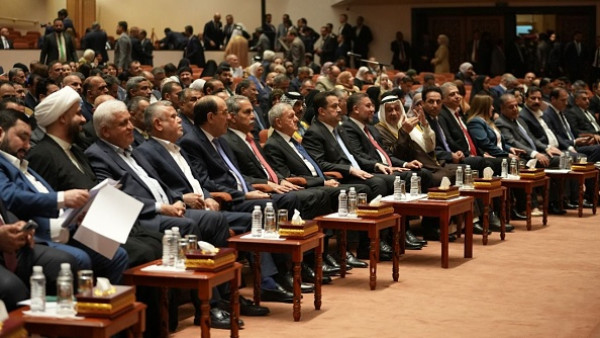In the Iraqi region of Kurdistan, and in Iraq generally, LGBTQ people face “honor” killings and abuse from their parents.
SULAIMANI, IRAQ-
In the Kurdistan region of Iraq, parents used to kill or give away their LGBTQ children to the orphanage in order to protect what they saw as their family’s honor.
A young LGBTQ person from Bagdad told me with dry tears what he went through with his parents trying to kill him for the family’s “honor.”
Defending the human rights of LGBTQ people in Iraq
Noor* was critical of human rights in Iraq: “Human rights in Iraq would be defined as anything that threatens humans’ lives. But when it comes to LGBTQ issues, including honor killings, they ignore those case as if they did not exist.”
The report associated with the Universal Periodic Review at the UNHRC stated that, during the review, Iraq specifically and officially rejected any contacts from UN members who wanted to tell them of the necessity of protecting people on the basis of their sexual orientation or gender identity, and to investigate homophobic hate crimes and bring perpetrators to justice.
People mistakenly believe that Islam encourages and legalizes killing LGBTQ
Islam is not the cause of “honor killing” and does not support it. Also, most focused and serious occurrences don’t involve Muslims at all. A lack of understanding of Islam often makes LGBTQ victims blame Islam for the crime, It also causes people to believe that Islam dismisses human rights, which is not true.
Saman Muhammad, a religious “mullah” working in the Abu Baker Al Musanif mosque in Sulaimani, said that “there is no principle in Quran that gives anyone the right to commit “honor killing.” “Honor killing” in Islam is just like any killing, and the court should punish the person who commits ‘honor killing’ just like any murder.”
Noor* who is a 20 year-old transgender living in Sulaimani said: “I used to have an LGBTQ friend from Bagdad whose family supported her in finishing her education and going to university. Even though her family was more religious than my father.”
Noor* tried to explain that although religious people in our country don’t have much background and understanding about LGBTQ people, some of them still respect diversity and believe in gender equality.
Scriptures and later writers typically mentioned only particular sexual behaviors, and did not raise the issue of personal sexual orientation. ”Homosexuality” was not understood to be a personal identity until only very recently, which is what previously made “honor killing” legal for some people — based on the fact that there is no clarity in the Quran about LGBTQ rights.
“Honor killing” and its consequences for LGBTQ people in Iraq.
Many say that violent “honor killings” are “not taken seriously” by the police. The Kurdish and Middle Eastern Women’s Organization (KMEWO), a UK-based NGO that supports s the human rights of Kurdish and Middle Eastern women in the UK and abroad, says also that the police are “unable or unwilling to offer… protection.”
Samira Ahmed, a 32 year-old in Kirkuk, said that “Even if the police capture the family member or members who committed the “honor killing” or tried to do it, there is no penalty for them since they were trying to protect the family’s honor.”
The orphanage is where some Iraqi parents put their LGBTQ children.
Some Iraqi gay men used to be beaten by their family members, and particularly their fathers and brothers. And sometimes their fathers and brothers immediately kick them out of their homes with nowhere to go.
Latifa* Ahmed, an Iraqi Arab woman from Kirkuk, had a 14-year-old bisexual son. “When my son Yessin became 14 years old, his father and I felt that he wasn’t acting and behaving like a boy for some reason. One day, we took him to the doctor, and the doctor said that he was bisexual. That very day, we took him to the orphanage,” Ahmed said.
Ashour, who is the head of the IraQueer Organization in the US, said that the “IraQueer Organization started to help many LGBTQ people since 2015 — especially Iraqis whose parents kicked them out or tried to kill them because of their sexual orientation.”
IraqQueer tries to provide a safe house for LGBTQ people, especially those inside Iraq, where they can find security and freedom. “Now I live a very happy life in the UK,” said Noor*, a 20 year-old transgender in Sulaimani, “and I just wish for all LGBTQ people to be able to have the same life as mine.”
* Pseudonyms have been used in order to protect many of the individuals profiled or interviewed for the article.



